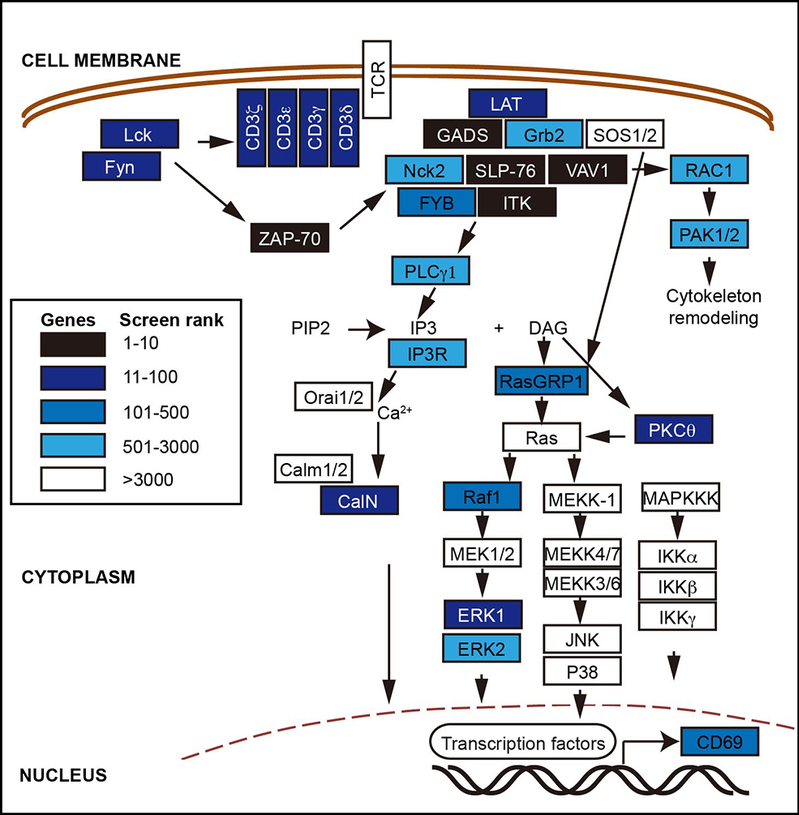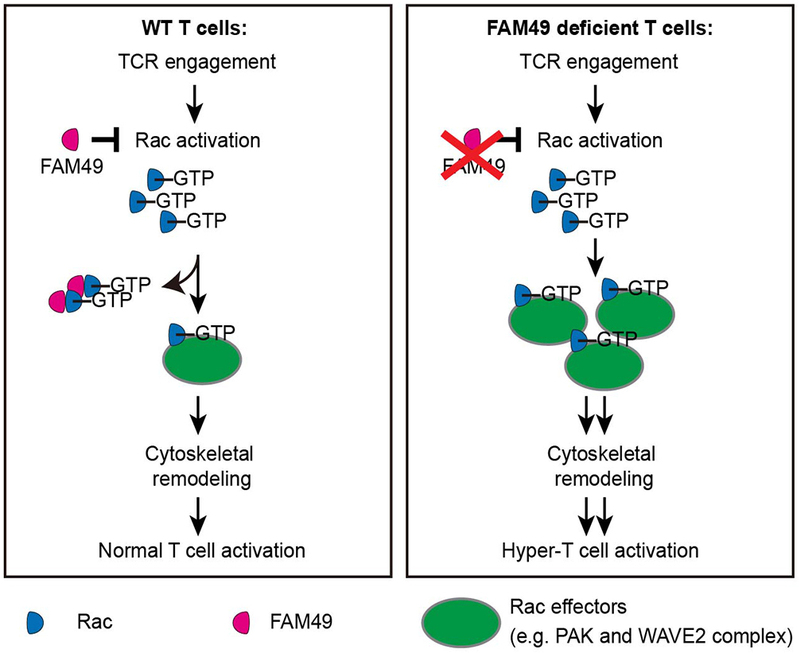An international effort within the immunology research community resulted in the first genome-wide CRISPR screen focused on the molecular mechanism of T cell function regulation. A group of scientists led by Dr. Haopeng Wang of ShanghaiTech’s School of Life Science and Technology, along with Dr. Arthur Weiss at UCSF and Dr. Lai Wei of the Zhongshan Ophthalmic Center at Sun Yat-sen University, have systematically investigated the T cell signal transduction network, using an unbiased screen approach. Their paper, “A genome-wide CRISPR screen identifies FAM49B as a key regulator of actin dynamics and T cell activation,” was published online in PNAS on April 9, 2018.
The recent success of T cell-based cancer immunotherapies highlights the importance of further understanding the molecular mechanisms underlying the regulation of T cell responsiveness. Dr. Wang’s team performed a genome-wide CRISPR screen to identify genes that regulate T cell activation upon anti-T cell receptor (TCR) stimulation. This screen not only confirmed many of the known regulators in proximal T cell signaling, but also identified a previously uncharacterized gene named FAM49B, which acts as a negative regulator in T cell activation. This study suggests that genome-wide CRISPR screening is a powerful means to identify key regulators of TCR signaling. The same strategy could be applied to CD28-mediated co-stimulatory signaling or PD-1–mediated co-inhibitory signaling. The unbiased approach presented in the paper may allow scientists to identify new therapeutic targets for cancer immunotherapy.
Read more:http://www.pnas.org/content/early/2018/04/03/1801340115

Figure 1: CRISPR screen reveals TCR signaling network of T cell activation
 Figure 2: Proposed model for FAM49B mediated regulation
Figure 2: Proposed model for FAM49B mediated regulation

